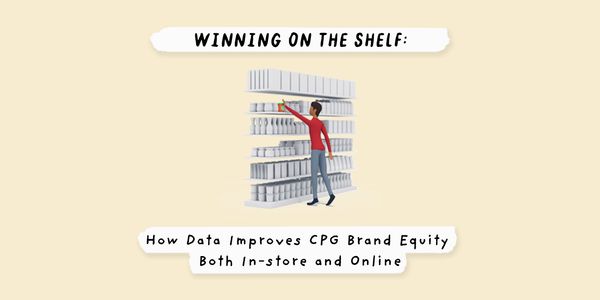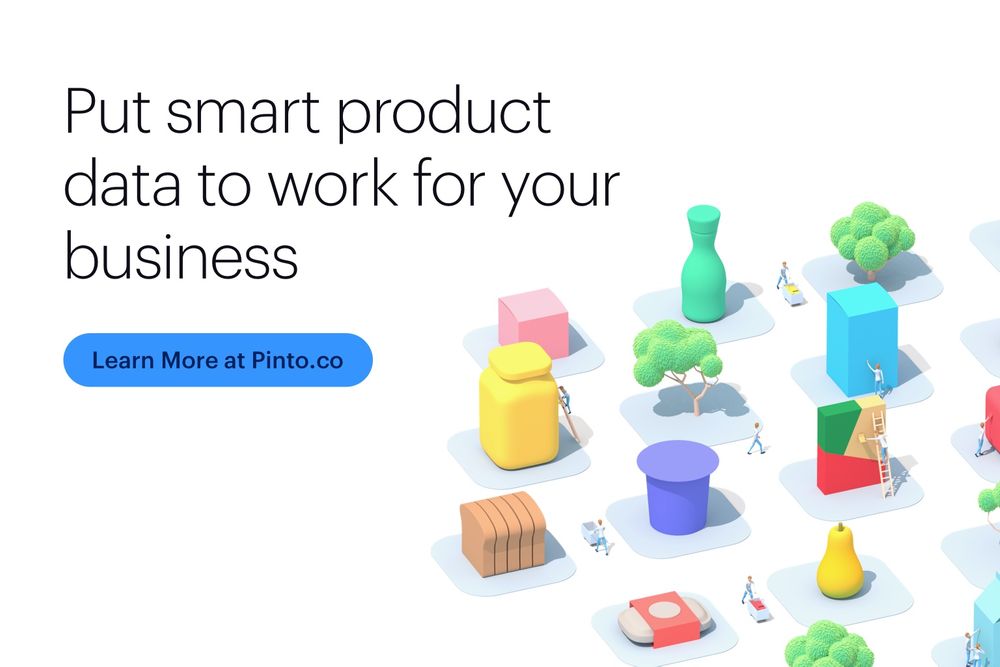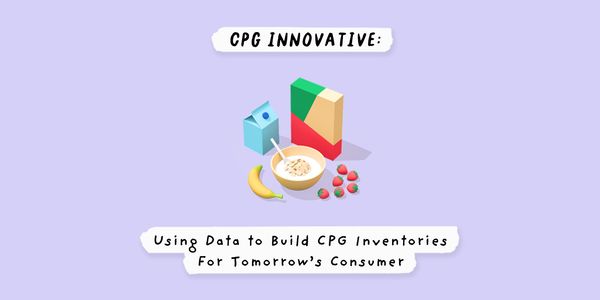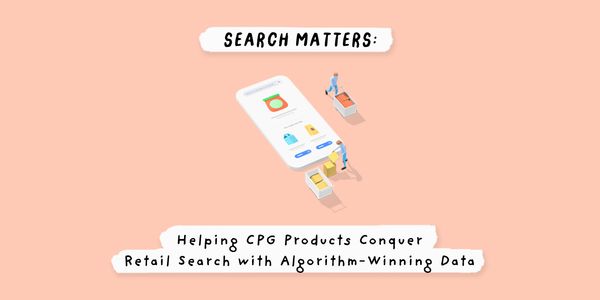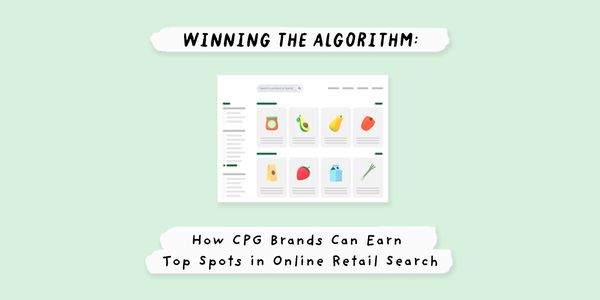A brief look
- More people are shopping online than ever before — and as consumers shift towards digital, CPG brands need to follow suit.
- That said, having high-quality, optimized data is not just about online search and ecommerce platforms, it also contributes to brand equity on the physical shelf.
- If CPGs want to stay competitive, they need to form strong partnerships with retailers and leverage smart data management systems that allow them to best express their products and their special qualities to these retail partners.
- Not only will this improve their online performance, but it will create long-lasting relationships with retailers who are constantly looking to optimize and improve their catalogs to meet the evolving needs of their customers.
Dive deeper
With preference-based shopping on the rise, and more and more consumers turning to online retail experiences, it’s important that consumer packaged goods companies (CPGs) remain relevant on the digital shelf and beyond. And doing so requires having up-to-date, complete, and optimized data on file with each and every retailer. Retail platforms are only as strong as the data that goes into them.
While collecting, updating, and maintaining data across multiple retail systems is no easy task, it becomes even more complicated if retailers make changes to their systems that don’t get communicated to CPG brand managers. When these data sets go unmanaged or become out-of-date, CPG brands risk losing visibility in digital searches and shopper discovery opportunities. This can result in lost sales, diminished brand power, and potential loss of retail interest. What’s more, a lack of forward-looking and informed data can also impact a CPG’s competitive edge, resulting in lost opportunities for strategic formulation changes, packaging re-designs, and timely in-store merchandising strategy shifts.
To avoid these issues and to keep their brand integrity high, CPG manufacturers need to leverage data-backed approaches and data management tools that can communicate real-time product changes and current marketing messages to both retail systems and at a physical store level.
The benefits of these data-backed approaches are twofold. They can improve the performance of CPG brands online, by creating nuanced data sets that are optimized for consumer searches and for best-in-class product detail pages (PDPs) that convert. As well, they strengthen long-term partnerships with retailers who want to optimize their catalogs by integrating physical shelf space with products that best meet the needs of evolving shopper preferences (like keto, plant-based, no added sugar, and similar). By working together to find solutions that keep up with evolving consumer needs, CPGs and retailers are providing a more personalized experience to their shared customers that will help build brand equity for the future.
Why data health matters for CPG brands
With 43% of consumers now shopping for grocery products online, being relevant and visible on the digital shelf is more important than ever. In order to achieve this, CPG brands need consistent, updated, and nuanced data that allows them to turn up in every possible search in a retail search system. In addition, because these systems are structured for preference-based search and filtering, they require intricate data points and attributions that match what consumers are looking for. Allergy information, dietary restrictions, and health goals must all be included in CPG data.
The Pinto platform helps by making sure every product is tagged and attributed across every possible datapoint that a retailer leverages in their digital systems. This allows brands to maintain high-quality data across multiple retailers, ensuring their product is always displayed, optimized, and promoted correctly no matter the interface. This data-backed approach ensures brands have complete control over the data they share across all their retailers.
Without this data, CPG brands risk losing space on the digital shelf to competitors or becoming invisible in consumer search. Ultimately, strong data quality is the key to CPG brand equity, both in-store and online.
Using retail feedback loops to maintain high-quality data
For CPG manufacturers, keeping up with retail data needs and modifications can be a complicated task. If retailer specifications change, it may be a long time before that information is communicated to CPG brand teams and then implemented.
That’s why it’s imperative that CPG brands leverage retail feedback loops that enable them to stay up-to-date on retailer requirements. Data management platforms like Pinto can be particularly useful here — constantly monitoring retailer data needs and modifications, and then communicating those updates back to the CPG manufacturers and giving instructions on what exactly they need to do as a result to stay up-to-date and optimized.
If these updates aren't done regularly, retailers will notice discrepancies between what their systems show and what is actually presented to consumers. This could have a negative impact on the brand equity of CPGs.
By centralizing their data and following retailer updates, brands can maintain an accurate inventory of each product they offer at retail stores. This will also ensure that products are available to be shopped online when consumers use search engines like Google or Bing.
In-store teams to the data rescue
Pinto also has in-store teams which conduct inventory checks in retail stores to see what products of the CPG have not been updated, are missing assets, or don’t have any assets at all. This is a huge advantage for CPG brands against their competitors, who may still be struggling to get data updates through complicated pipelines.
For products that have gone through significant change, in-store teams can recapture product information right in the store, or the brand can send in the product to Pinto’s content studio.
From there, Pinto delivers complete data assets to retailers for eCommerce sites (ensuring that the retailer’s system has the most updated information) and presents rich information to consumers to further support their preference-based shopping.
Healthy data, healthy brands
With complete, up-to-date, optimized data, CPG brands stand to widen their audiences, increase their revenue, and build better brand equity for the future. Yet, for this to happen effectively, smart use of data platforms is needed to ensure all data is up-to-date and well-managed across every retailer system.
It’s also important that CPG brands see their data as more than just a digital asset. Data can be instrumental in a brand’s success not only online, but on the physical shelf as well. By going beyond the screen and into physical retail, Pinto provides a full-fledged data management experience that ensures CPG brands benefit from data health at every level of a retail system.
The end result of this system is better, more accurate choices for consumers, increased revenue for CPG brands and their retail partners, and long-lasting, forward-facing data that will continue driving conversions for years to come.
Learn more about Pinto’s latest CPG brand initiatives here.

